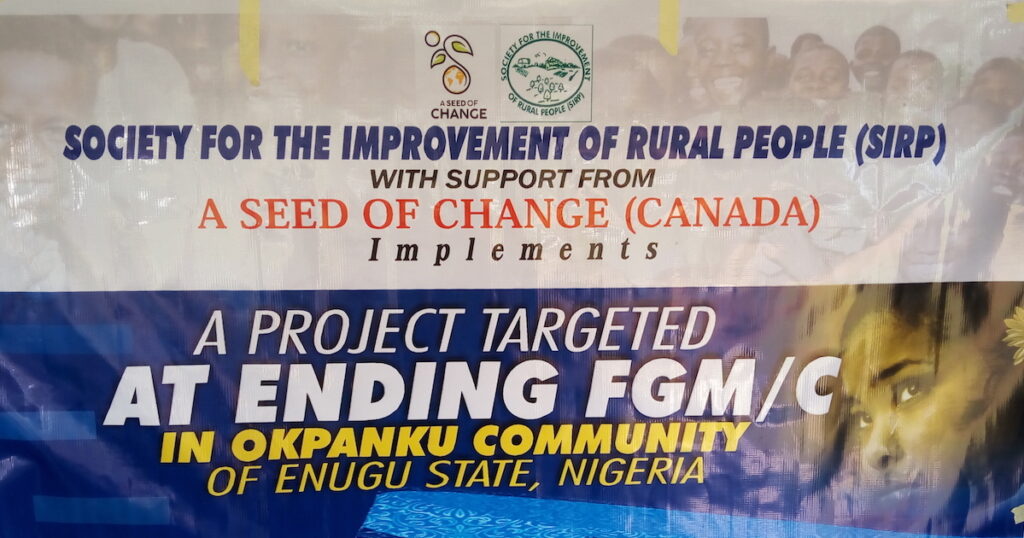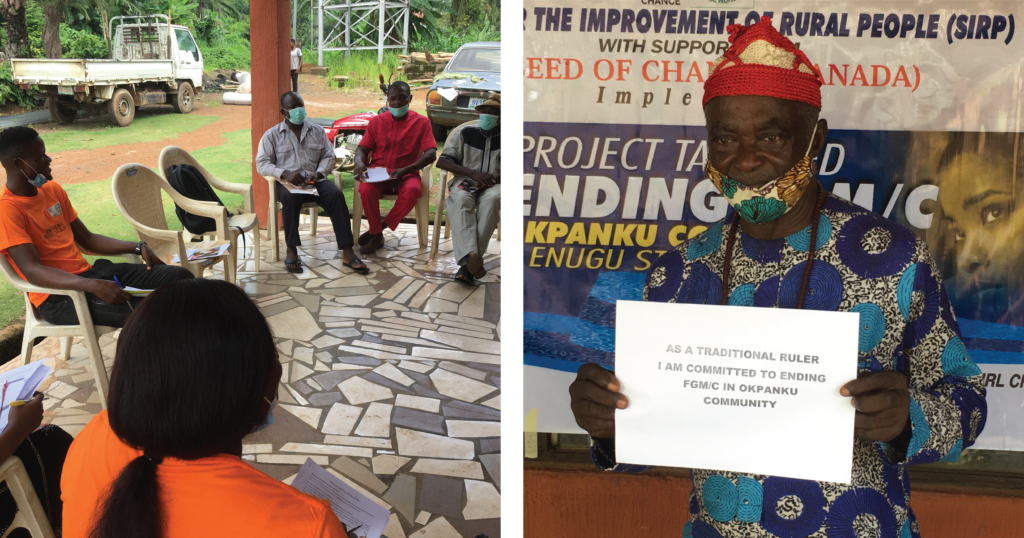
This story is authored by Society for the Improvement of Rural People (SIRP). Visit: www.sirpnigeria.org
In August 2020, MenCare partner Society for the Improvement of Rural People (SIRP) in Okpanku Community of Enugu State, Nigeria organized a knowledge-sharing session on female genital mutilation (FGM) for 15 participants, comprised of various men and boys. The goal of this session was to increase participants’ knowledge about FGM and to also gain their support in ending it in the community.
The program kicked off with an opening prayer and introductions facilitated by Mrs. Nnedi followed by a brief opening remark from Dr. Chris Ugwu, the Executive Director of SIRP, Nigeria. He thanked A Seed of Change (Canada) for supporting this program. Thereafter, he thanked all the participants for making time to attend this training. He spoke about the need for men and boys to be involved in ending FGM in their communities; FGM is largely a patriarchal issue, which involves an erroneous belief amongst most men that they have rights over the bodies of women. He encouraged the participants to practice healthy masculinity and work to prevent their girl children, sisters, aunties, etc. from being mutilated.

After introductions, SIRP assessed and reviewed the current status of FGM in the community. They shared with participants the prevalence rates of FGM, information on why FGM is still practiced in the community, and discussions on the harmful outcomes for women and girls, and to the community as well.
After this training, SIRP opened the floor for comments from the participants. First to speak was Igwe RA Chukwu (the traditional ruler of Okpanku). He said that the training was indeed an eye-opener for them as they learned things which they did not know about before. He went on further to assure SIRP of his commitment to passing by-laws to see that FGM is ended in the community. Another participant, Mr. Elechi Christopher, stated that he was impressed with the strategy used in the session: allowing all participants to share their opinions and thoughts about FGM freely. He further assured SIRP of his own commitment to ending FGM in the community.
After this series of comments, participants were later split into three groups: gender, health, and education. In these groups, participants discussed ways forward for this project. After the group discussions, the groups made presentations centered around their commitments as men and boys to end FGM in Okpanku community.
The workshop ended with a closing remark by Dr. Chris Ugwu. He thanked everyone for coming and also specially thanked A Seed of Change (Canada) for supporting this program.
